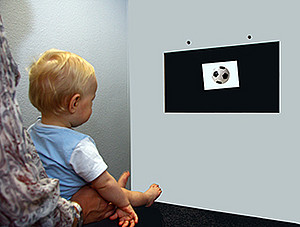Learning words from reliable and unreliable informants

One of the early challenges facing the young language learner is that she must learn the words in her mother tongue, that is, she must learn to associate words with their referents, e.g., the word ball with a prototypically shaped round object. While most of their language input comes from their caregivers, young children are often exposed to others in their day-to-day interactions, whom they can also learn from. These others may, however, be more or less reliable sources of information, depending on their cultural, social or linguistic background and the extent to which their prior linguistic experience overlaps with that of the young learner. To give just one example, second language users of the child’s native language may not be as reliable a source of information relative to a native speaker of this language. This project examines whether young children keep track of the reliability of their interlocutors, and whether they learn more readily from more reliable than less reliable social partners. We are particularly interested in the extent to which infants acquire and maintain word-object mappings introduced by a less and more competent interlocutors. The reliability of the interlocutors is introduced via the child’s prior experience with two different people consistently labelling other familiar objects correctly (calling a ball ball) or incorrectly (calling a ball car). Having established their reliability, the two interlocutors then proceed to teach children new labels for novel objects. We subsequently test learning by examining children’s eye-movements across images of the novel objects as a measure of their learning of the association between a novel label (e.g., Kela) and a novel object, i.e., do children look at the correct object when they hear the word Kela. We found that young children learn from both reliable and unreliable informants, although there may be differences in their access to this learned information in subsequent language use, such that they may be more easily able to access information learned from reliable informants. The results suggest, on the one hand, the flexibility of the early learner, in as much as they learned from both kinds of informants, while also highlighting differences in the robustness of learning from reliable and unreliable informants at an early age. Ongoing research is currently examining this issue further by looking at the factors that influence children’s learning from reliable and unreliable informants, e.g., the extent to which the information provided by the two informants conflicts with each other, how such learning changes across development, and the extent to which what is learnt is retained and impacts subsequent performance.



